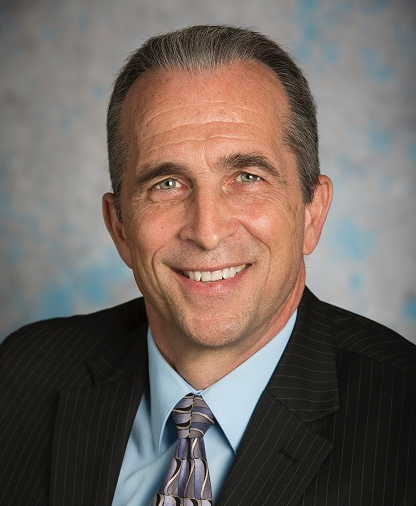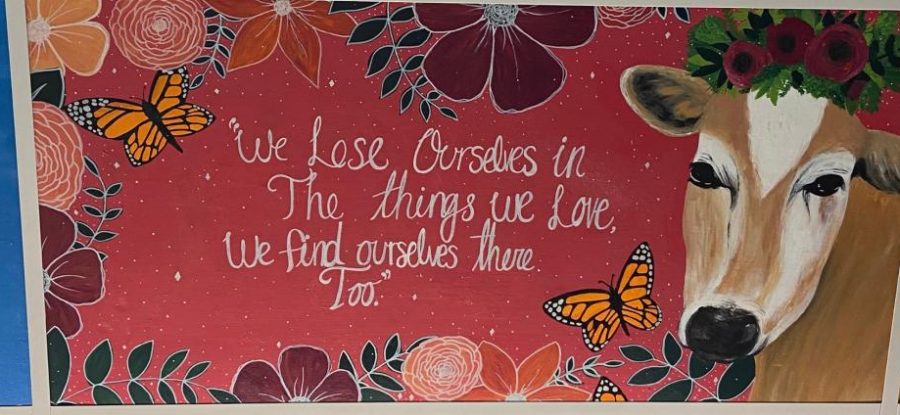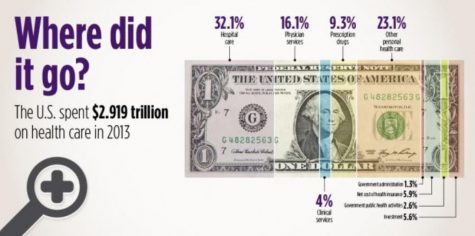Celebrity Culture Influences Narcissism
June 2, 2017
Everyone dreams about life as a celebrity, and of how that lifestyle has so much to offer — fame, fortune, and friends in high places. Keep dreaming! Celebrity culture isn’t what it’s cracked up to be. “They have fame, but their every move is scrutinized. They have great fortune, but they can trust no one. They are loved by millions, but they are also hated by millions too” (Hedges). Chaos is one word that best describes their lives, and one word that best describes their personality is narcissistic. Fame can make even the most humble celebrity a narcissist. However, their narcissistic behavior is just a cover-up, a mask they wear to hide their real identity. In the grand scheme of things, celebrities are like commoners, but they just won’t let that side of their life show. Narcissism is rampant among celebrities and fans should be aware of that because it negatively impacts their culture.
Research proves that most celebrities really are narcissistic. Dr. Drew Pinsky, the host of a radio show called Loveline, conducted a study in which 200 celebrities took a questionnaire about narcissism. As it turns out, the majority of them scored significantly higher on narcissism than the average person. Celebrities such as Kanye West, Kim Kardashian, Mariah Carey, Paris Hilton, Beyonce, and Donald Trump are the most narcissistic celebrities. What do they all have in common? They’re all full of themselves. Celebrities, in general, are full of themselves because they have succeeded where others have failed. For the most part, their appearance brought them to that success. In the real world, appearance is valued more than personality. Those who appear to be beautiful on the outside have what it takes to follow their dreams. Narcissistic behaviors include: multiple sex partners, constantly taking “selfies,” always in the spotlight, and poor treatment of fans. These specific celebrities display at least a few of these actions on a day to day basis, nonchalantly (Twenge and Campbell).
The U.S. — specifically Hollywood — has become the main source of celebrity culture and has been known to express celebrity culture more than any other country in the world. Some critics warn that this celebrity culture can lead to narcissism, or unhealthy self-involvement, especially in children (“Celebrity Culture”). Celebrities and commoners are two different social groups with two completely different cultures. The belief that celebrities have a higher social status than commoners is unfortunately true. Commoners glorify and idolize celebrities, unintentionally advocating their narcissistic attitude and behaviors. We tend to live vicariously through our favorite celebrities because they follow our wildest dreams. Celebrities are privileged and that’s mainly what makes them narcissistic. They get special treatment, especially in court — which is the most controversial example. They are often let off the hook and get a lenient sentence when they break the law. Just the fact that they are treated better than us makes most of them believe that they are, in fact, better than us — which is obviously untrue.
Critics of Dr.Drew Pinsky’s study argue that celebrities are misunderstood rather than narcissistic. They state that most Americans don’t know what celebrities are “really” like due to the fact that we don’t get to see them in their private moments or hear their personal conversations (Twenge and Campbell). But in all reality, that doesn’t really matter. Just watching them on T.V. or reading about them in magazines is enough to support my argument. Celebrities are often caught on camera doing narcissistic acts, whether it’s being promiscuous or pacing the red carpet. Truth be told, narcissism only matters when it’s displayed towards people. Some people are left with feelings of insecurity and depression knowing that they aren’t living up to their idol’s standards (Hedges). However, when narcissism isn’t affecting anyone, it’s honestly not a bad thing, but it’s still a worldwide concern that needs to be addressed.
I wish it was safe to say that not all celebrities are narcissists, but you can never be too sure, especially when someone you once knew to be humble turned into a conceited, egotistical jerk the minute they became a celebrity. That’s usually the case. But it has been believed that the older a person gets, the less likely they are to crave celebrity (Celebrity Culture). This means that narcissistic attitudes and behaviors decrease as you get older and wiser, wise enough to understand that you were once a commoner before you became a celebrity. All should treat others the same way they’d want to be treated!
Works Cited
“Celebrity Culture.” Opposing Viewpoints Online Collection, Gale, 2015. Opposing Viewpoints in Context.
Hedges, Chris. “Celebrity Culture Is Harmful.” Celebrity Culture, edited by Roman Espejo, Greenhaven Press, 2011. Opposing Viewpoints. Opposing Viewpoints in Context. Originally published as “Addicted to Nonsense,” Truthdig.com, 30 Nov. 2009.
Twenge, Jean M., and W. Keith Campbell. The Narcissism Epidemic: Living in the Age of Entitlement. New York: Atria Paperback, 2013. Print.























































Julia Lindo • Jun 12, 2017 at 1:45 pm
This story is hilarious but true at the same time…